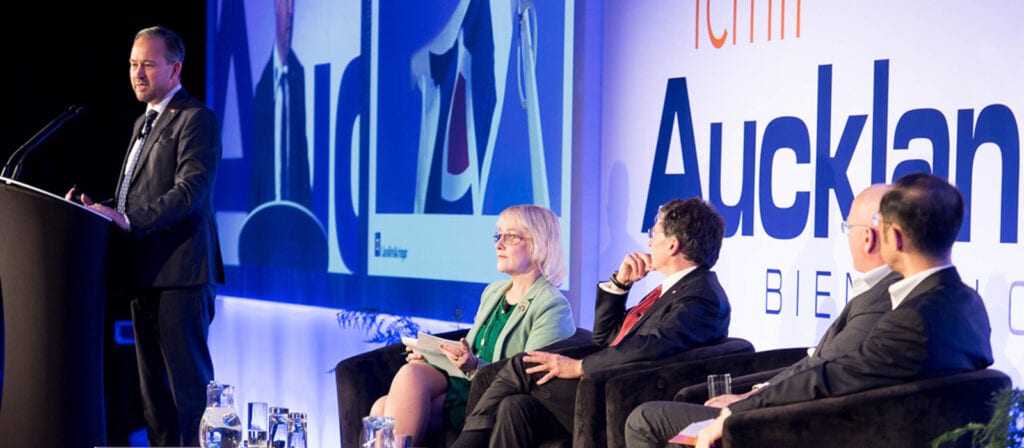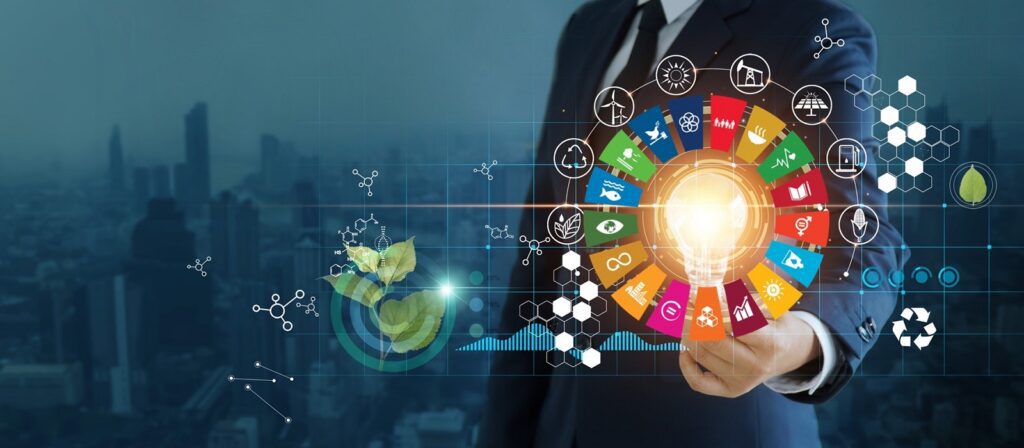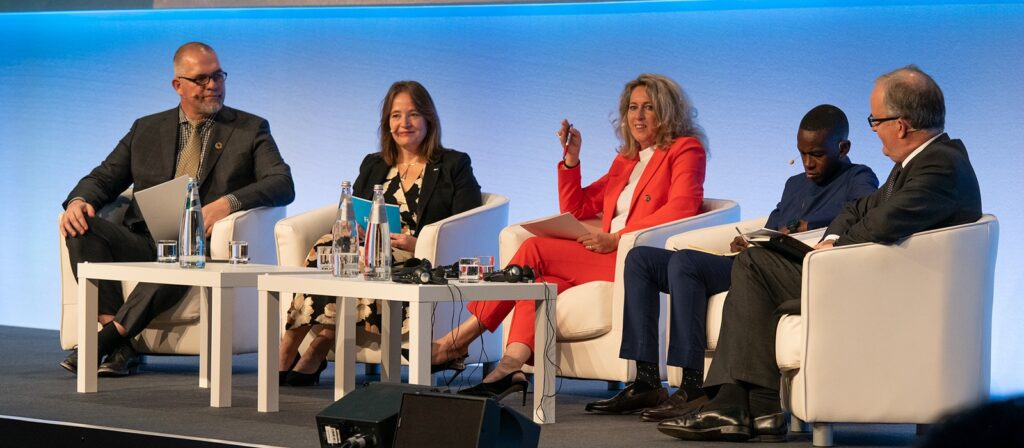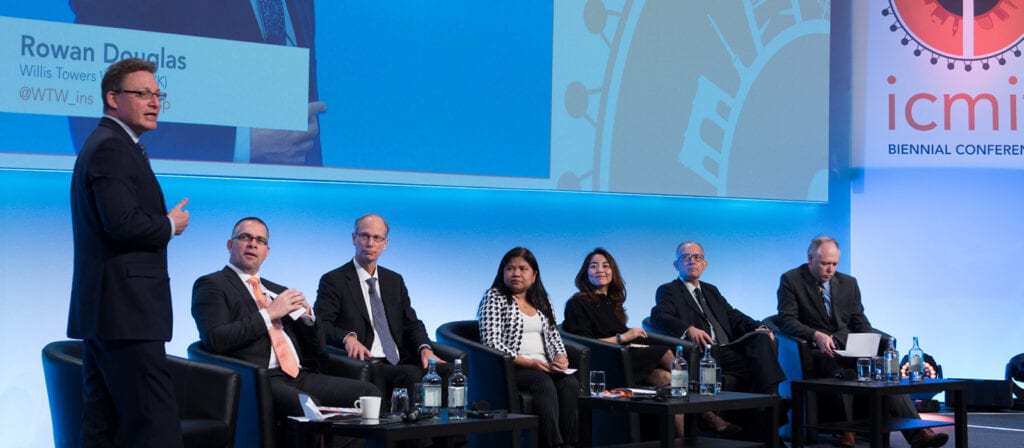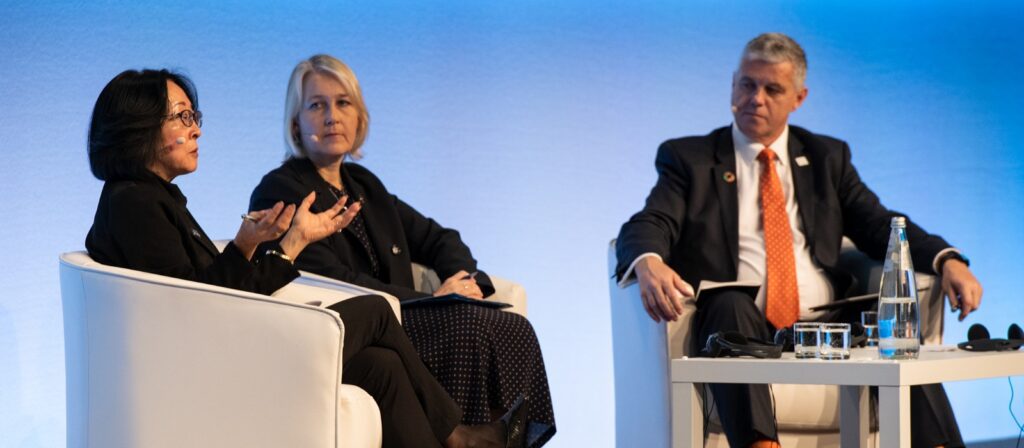The SDGs are the blueprint to achieve a better and more sustainable future for all. They address the global challenges, including those related to poverty, inequality, climate change, environmental degradation, peace and justice. Jan Kellett from the UNDP (United Nations Development Program) describes the breadth of the 17 SDGs, noting that they apply to every country. It is not about the flow of funds from developed to undeveloped nations, but a wider set of stakeholders that is required, including the cooperative/mutual insurance sector.
At Grupo Sancor Seguros (Argentina), the principles of sustainability are inherent in the cooperative/mutual business model, so the SDGs are vital for his organisation’s work. The Group’s actions must enable the creation of socio-economic value as well as profitability. Sancor’s work includes the “Sustainable Citizen” programme to promote ethics, road safety programmes, and initiatives to reduce workplace accidents. It has also set up a centre for social, corporate and technological innovation (CITES) and are finding ways to use technology to create positive social impact, for example, reducing gender discrimination in policy pricing.
Sancor has a range of partnerships (Global Reporting Initiative, Global Compact, Council for Entrepreneurship, government, ICMIF’s Intelligence Committee, etc) and is aiming to shift its business from protection to prevention. It is investing in technology for social good (such as early detection of Alzheimer’s, pesticide-free forest control using robotics). There are no limits to the types of partnerships that can help.
In the Philippines, CARD MBA (mutual benefits association) provides protection to 6.8 million families (26% of the entire Filipino population), which contributes to SDG 10 – reduced inequalities and poverty eradication. In the next five years, they will scale up even further, as part of ICMIF’s 5-5-5 Mutual Microinsurance Strategy. Their fast claims payments – a key aspect of microinsurance – has enabled CARD to grow and they now settle claims within eight hours thanks to its digital transformation.
CARD’s partnership with the Filipino government was initially important because the Filipino government and regulator did not view insurance as suited for the poor. New partnerships are now important, for example, research by the Cambridge Institute for Sustainability Leadership (CISL), which has assessed and ascertained the value of cooperative microinsurance for reducing poverty.
The Co-operators (Canada) has set the organisation’s 2030 goals through a sustainability lens because more and more Canadians will become more exposed to risks that they cannot afford to insure. Their holistic view of insurance includes risk adaptation and risk mitigation. The SDGs are a natural extension to their sustainability actions.
The Co-operators is building on its impact investing efforts. By 2020, 20% of its entire assets under management (CAD 2 million) will be invested in impact investments and while other institutional investors have invested larger total amounts, The Co-operators are investing a higher percentage and punching above their weight nationally and globally. Impact investing is about generating comparable financial returns and, at the same time, generating positive social or environmental impact. They are working with the Taskforce on Climate-related Financial Disclosures (TCFD) to enable better company investment decisions, and Accounting for Sustainability (A4S) which provides guides to inspire socially/environmentally positive action for finance leaders.
Folksam (Sweden) aims to influence and inspire globally, even though it is located in a small country. It has identified five sustainability goals, which link to six of the SDGs, and use partnerships to help achieve them and have a global impact. The company is also using its investments to generate such impact. Folksam was a founding member of the Principles of Responsible Investment (PRI) in 2006, and this year was among the first to join the UN-convened Net-Zero Asset Owner Alliance. CEO Ylva Wessén explains that, alone, they can achieve a small part, but together, they can achieve so much more.
An ICMIF audience poll showed that just partnerships are central for just under 20% of respondents; most had a small number of partnerships; 40% reported partnerships are not fundamental.
Sancor’s CEO Alejandro Simón explains that, in addition to typical hurdles (inertia, resistance to change), the political and macroeconomic situation in Argentina makes it harder to prioritise and plan for the longer term. He also notes that while there are synergies between insurance and the SDGs, there can be conflict, for example where increasingly individualised risk pricing destroys the concept of risk pooling.
Ylva Wessén explains that it is important to work tirelessly on sustainability issues but notes that some actions can generate huge financial savings, such as the circular claims settlements which they adopted in 2002. Even as a relatively small company, Folksam can have a wider, global impact by trying to influence the bigger companies in which they invest, which enables customers to have an impact too.
The audience was polled about the types of risk for which external partnerships could offer the greatest value, and the most popular response at 40% was innovation. The panellists shared the elements in which they believe partnerships have had the greatest impact.
For Alejandro Simón, it was innovation for disruptive business models. For Aris Alip (CARD MBA), it is the policyholders themselves. For Lisa Guglietti (The Co-operators), partnerships are about access to greater capabilities/resources and different thinking to create greater impact than they can have alone. Ylva Wessén noted that Folksam’s employees are proud to work at Folksam, which allows them to attract the best talent.
Session panellists:
- Alejandro Simón, CEO, Grupo Sancor Seguros (Argentina)
- Dr Aris Alip, Founder and Chairman, CARD MRI (Philippines)
- Lisa Guglietti, Executive Vice-President and Chief Operating Officer, P&C Manufacturing, The Co-operators (Canada)
- Ylva Wessén, President and CEO, Folksam (Sweden)
- Jan Kellett, Special Advisor: External Engagement, United Nations Development Programme (UNDP) moderator
